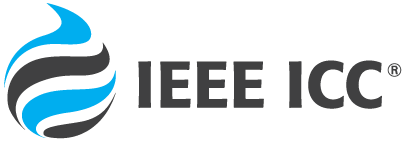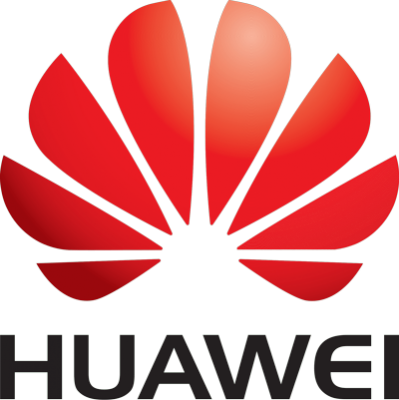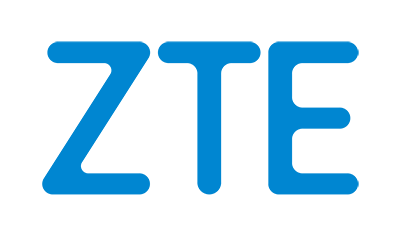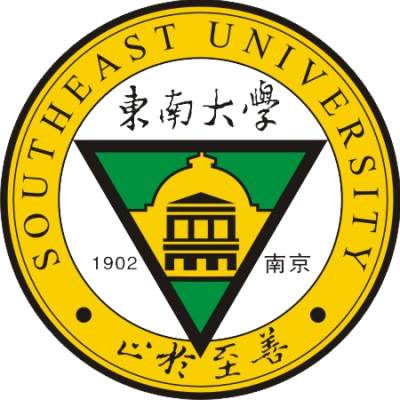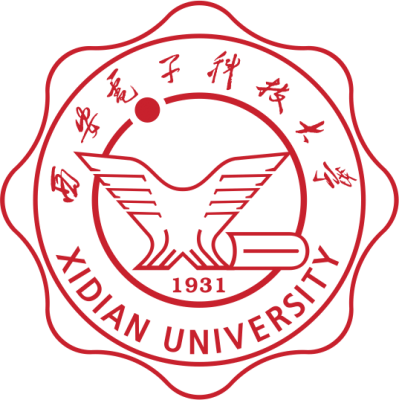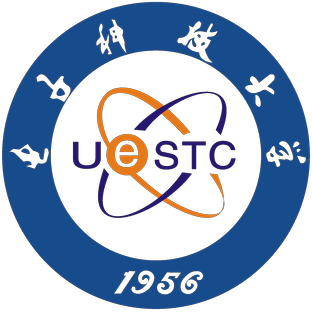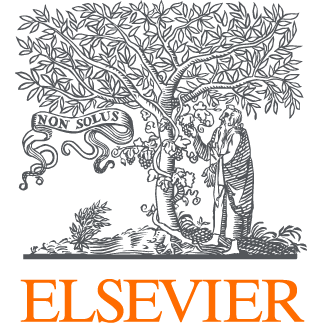NFS Student Travel Grants
IEEE ICC 2019 conference offers a small number of NSF travel grants to the students on competition basis. The travel grants are to promote diversity of the conference attendance. This grant is particularly for 1) first time attendees without an accepted paper, and 2) women and minorities. These travel supports will enable sharing scientific information and stimulating research interests for students in the field of communications and networking.
Applicant Eligibility
Conditions for receiving an award are as follows:
- The applicant must be a student at US institutions at the time he/she attends the conference;
- The student applicant must be full-time student registered toward a Bachelor, Masters, or PhD degree in computer science, engineering or related field in a college or university when submitting the applications;
- Please indicate if the applicant is a first-time attendee to the conference who do not have papers at the ICC 2019. Undergraduates and beginning graduate students are strongly encouraged to apply. (If you do not have EDAS account, please register at https://www.edas.info/.)
- Please indicate if the applicant is from under-represented groups (women and minority). Authors of accepted ICC 2019 papers are allowed for this category.
- During the expense reimbursement stage, the student applicant must show the proof of having registered to attend the IEEE ICC 2019 conference;
IMPORTANT NOTE: All flights made on a NSF travel grant award must be either on a US-flag carrier or ticketed through an US-carrier (e.g. codeshare flights on international airlines).
A student who is awarded a student travel grant must attend the conference in person. The student must register and attend. Payment will only be made to the student as long as the award recipient submits the expense report (with receipts) within 45 days after the conference. More details will be provided to the students who are selected to receive the NSF STG award.
IEEE is committed to the principle that all persons shall have equal access to programs, facilities, services, and employment without regard to personal characteristics not related to ability, performance, or qualifications as determined by IEEE policy and/or applicable laws. View more information on the IEEE Nondiscrimination Policy.
How to Apply
The application should be submitted electronically via EDAS.
The application must include the following:
- A support letter from the student's advisor (the advisor can directly submit the reference letter on EDAS).
- Student’s CV
- A half-to-one page letter including the following information,
- The date of enrollment at the PhD/Master/Bachelor program and the expected date for graduation;
- The list of conferences previously attended by the student;
- US Citizenship status (if the students are not from US institution);
- Ethnicity and gender (for statistics, used to broaden the participation of under-represented students);
- A motivation/need of the student to attend the conference and how the conference would impact his/her research including outcomes and experience expected from the conference attendance.
- The student's advisor letter should include:
- Confirmation that the student is enrolled with good standing;
- Expected date of graduation;
- List of the conferences/workshops previously attended by the student;
- The suitability of the ICC program to the student's research area;
- The strengths and potential contributions of the student;
Note: Applicants are encouraged to make their travel plans without depending on award notification to ensure the lowest cost.
Important Dates
- Application Deadline: 20 March 2019
- Acceptance Notification: 10 April 2019
Additional Information: Please address any questions to the NSF Student Travel Grant Chair, Cunhua Pan with mandatory title: “IEEE ICC 2019 NSF Travel Grant Question: Your Last Name”.
ComSoc Student Travel Grants
IEEE ICC 2019 conference offers a number of ComSoc travel grants to the students who registered and co-authored an accepted paper in IEEE ICC 2019, on competition basis. The travel grants encourage participation by students who would normally find it difficult to attend. Women and minorities will be especially encouraged to apply. These student travel supports will enable sharing scientific information and stimulating research interests for students in the field of communications and networking.
Applicant Eligibility
Conditions for receiving an award are as follows:
- The student applicant must be a student member of the IEEE Communications Society at the time he/she applies for the grant;
- The student applicant must be a co-author of an accepted paper in IEEE ICC 2019 and present it at the conference;
- The student applicant must be full-time student registered toward a Bachelor, Masters, or PhD degree in computer science, engineering or related field in a college or university when submitting the applications;
- During the expense reimbursement stage, the student applicant must show the proof of having registered to attend the IEEE ICC 2019 conference; and
- The student may not receive more than one STG in any 12-month period
More details will be provided to the students who are selected to receive the student travel grant award.
Each award ranges from US$500 to US$1,000 subject to the travel reimbursement. A student who is awarded a student travel grant must attend the conference in person. The student must register, attend and present the paper (if the student is a co-author) at the conference. Payment will only be made to the student as long as the award recipient submits the expense report (with receipts) within 45 days after the conference. More details will be provided to the students who are selected to receive the STG award.
IEEE is committed to the principle that all persons shall have equal access to programs, facilities, services, and employment without regard to personal characteristics not related to ability, performance, or qualifications as determined by IEEE policy and/or applicable laws. View more information on the IEEE Nondiscrimination Policy.
How to Apply
The application should be submitted electronically via EDAS.
If you aren’t currently a ComSoc student member, you may still join and apply for a student travel grant. View the IEEE ComSoc Member Benefits page.
In EDAS, your profile must also be configured to indicate that you’re a ComSoc member. In EDAS, go to My Profile -> Memberships , then use the + button to add ComSoc membership along with entering your membership number.
Note that after the STG deadline, your ComSoc student membership will be cross-checked with the ComSoc master membership database for validity.
The application must include the following:
- A support letter from the student's advisor (the advisor can directly submit the reference letter on EDAS).
- The applicant’s up-to-date resume including citizenship (required), ethnicity and gender (optional, used to broaden the participation of under-represented students).
- A half-to-one page letter from the student to state the purpose of attending the conference.
The student's advisor letter should include:
- Confirmation that the student is enrolled with good standing;
- Expected date of graduation;
- List of the conferences/workshops previously attended by the student;
- The suitability of the ICC program to the student's research area;
- The strengths and potential contributions of the student;
- Availability of funds from other sources.
The letter from the student should include:
- Name, title of the accepted paper, EDAS Paper ID, ICC19 registration code and IEEE ComSoc membership number
- A brief summary of research interests and accomplishments to date;
- The date of enrollment at the PhD/Master/Bachelor program and the expected date for graduation;
- The list of conferences previously attended by the student;
- A description of areas in ICC 2019 program that would impact the student's research;
- A motivation of the student to attend the conference and how the conference would change his/her research including outcomes and experience expected from the conference attendance.
Note: Applicants are encouraged to make their travel plans without depending on notification from the committee to ensure the lowest cost.
Note: Two female applicants will be selected to help organize the Women in Communications Engineering (WICE) program.
Important Dates
- Application Deadline: 20 March 2019
- Acceptance Notification: 10 April 2019
Additional Information: Please address any questions to the Student Travel Grant Chair, Cunhua Pan with mandatory title: “IEEE ICC 2019 STG Question: Your Last Name”.
Clarification: One person can only be allowed to apply for one kind of travel grants.
Student Travel Grant Winners
We are pleased to announce the recipients of ComSoc Student Travel Grants for IEEE ICC 2019. The winners are:
-
Forough Shirin Abkenar
Institution: University of Sydney, Australia
Title: Energy Consumption Tradeoff for Association-Free Fog-IoT
-
Gabriel Rebello
Institution: Universidade Federal do Rio de Janeiro, Brazil
Title: A Blockchain-based Security for Network Function Virtualization Orchestration (New topic)
-
Jinlu Shen (WICE)
Institution: Washington State University, USA
Title: TDMR Detection System with Local Area Influence Probabilistic a Priori Detector
-
Lan Zhang
Institution: University of Florida, USA
Title: FRESH: FReshness-aware Energy-efficient ScHeduler for Cellular IoT Systems
-
Min Qiu
Institution: University of New South Wales, Australia
Title: Downlink NOMA without SIC for Fast Fading Channels: Lattice Partitions with Algebraic Rotations
-
Neetu Raveendran
Institution: University of Houston, USA
Title: Virtual Core Network Resource Allocation in 5G Systems using Three-Sided Matching
-
Shriya Kaneriya
Institution: Nirma University, India
Title: Can Tactile Internet be a Solution for Low Latency Heart Disorientation Measure: An Analysis
-
Trang N Cao (WICE)
Institution: University of Melbourne, Australia
Title: Di_usive Mobile MC for Controlled-Release Drug Delivery with an Absorbing Receiver
-
Tushara Malladi
Institution: Indian Institute of Science, Bangalore, India
Title: A Computation vs Communication Tradeoff in Distributed Matrix Multiplication over Finite Fields
-
Yan Liu
Institution: Queen Mary University of London, United Kingdom
Title: Markov Model based Energy Harvesting for RACH Analysis in NB-IoT Network
-
Christopher Feltner
Institution: University of Central Florida, USA
Title: Smart Walker for the Visually Impaired (E-Health symposium)
-
Hamideh Ramezani
Institution: University of Cambridge, United Kingdom
Title: Human Blockage Model for Indoor Terahertz Band Communication
-
Samira Rahimian
Institution: University of Alberta, Canada
Title: Performance Analysis of Massive MIMO Multi-Way Relays with Low-Resolution ADCs
-
Sunghwan Cho
Institution: The University of Oxford, United Kingdom
Title: Securing Visible Light Communications with Spatial Jamming
-
Almuthanna Nassar
Institution: University of South Florida, USA
Title: Reinforcement learning for IoT and 5G communication networks
-
Ayat Zaki Hindi
Institution: Télécom SudParis, France
Title: Ultra Reliable Low Latency Communication (URLLC) traffic in 5G networks
-
Emily W Lam
Institution: Boston University, USA
Title: Angle Diversity to Increase Coverage and Position Accuracy in 3D Visible Light Positioning
-
Binbin Su
Institution: Lancaster University, UK
Title: Outage Constrained Robust Beamforming Design for SWIPT-Enabled Cooperative NOMA System
-
Randa M. Abdelmoneem
Institution: Ain Shams University, Egypt
Title: A Cloud-Fog based Architecture for IoT Applications Dedicated to Healthcare
-
Carlos A. Astudillo
Institution: State University of Campinas, Brazil
Title: Probabilistic Retransmission for the Random Access in IoT Networks
-
Bala Venkata Ramulu Gorantla
Institution: Indian Institute of Science, Bangalore, India
Title: Allocating Multiple D2D Users to Subchannels With Partial CSI in Multi-Cell Scenarios
-
Zhongdong Liu
Institution: Temple University, USA
Title: Towards the Tradeoff Between Service Performance and Information Freshness
-
Wuyunzhaola Borjigin
Institution: Muroran Institute of Technology, Japan
Title: Dealer: An Efficient Pricing Strategy for Deep-Learning-as-a-Service
-
Kun Chen-Hu
Institution: Universidad Carlos III de Madrid, Spain
Title: Non-Coherent Multiuser Massive MIMO-OFDM with Differential Modulation
-
Benedetta Picano
Institution: University of Florence, Italy
Title: Passengers Demand Forecasting Based on Chaos Theory
-
Jonathan Guilbe
Institution: University of Central Florida, USA
Title: Smart Walker for the Visually Impaired
-
Hien Ta
Institution: Iowa State University, USA
Title: Covert Communication under Channel Uncertainty and Noise Uncertainty
-
Victoria Huang
Institution: Victoria University of Wellington, New Zealand
Title: Effective Scheduling Function Design in SDN through Deep Reinforcement Learning
